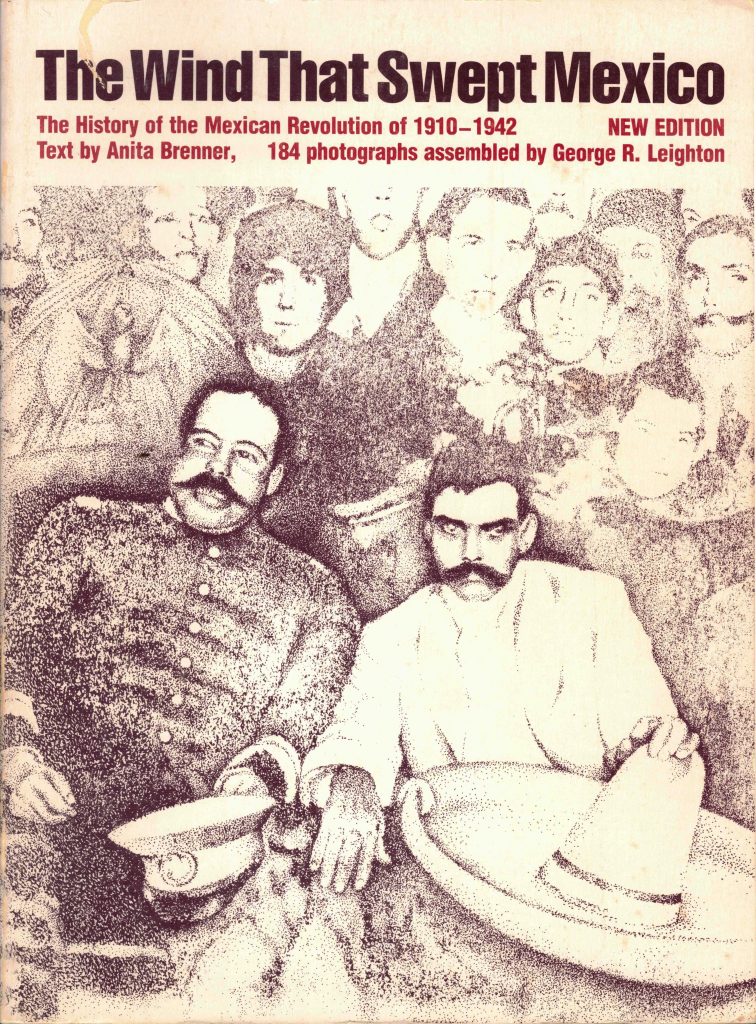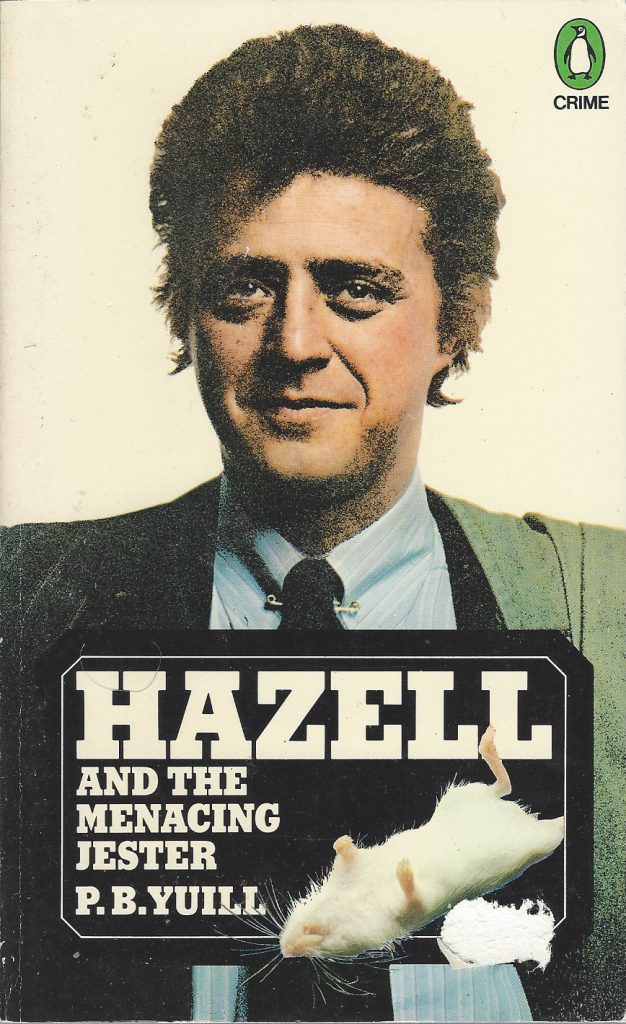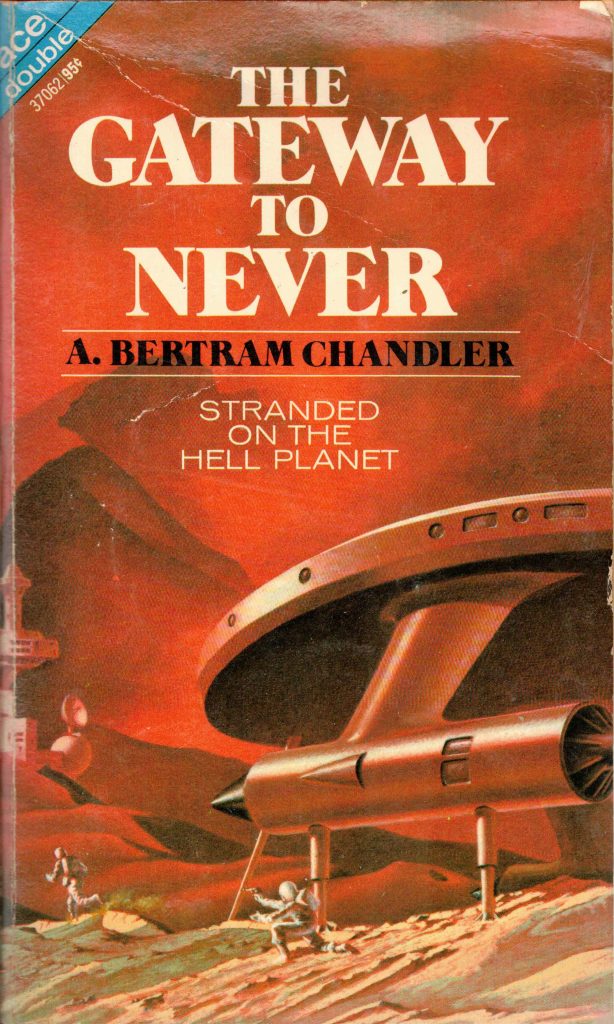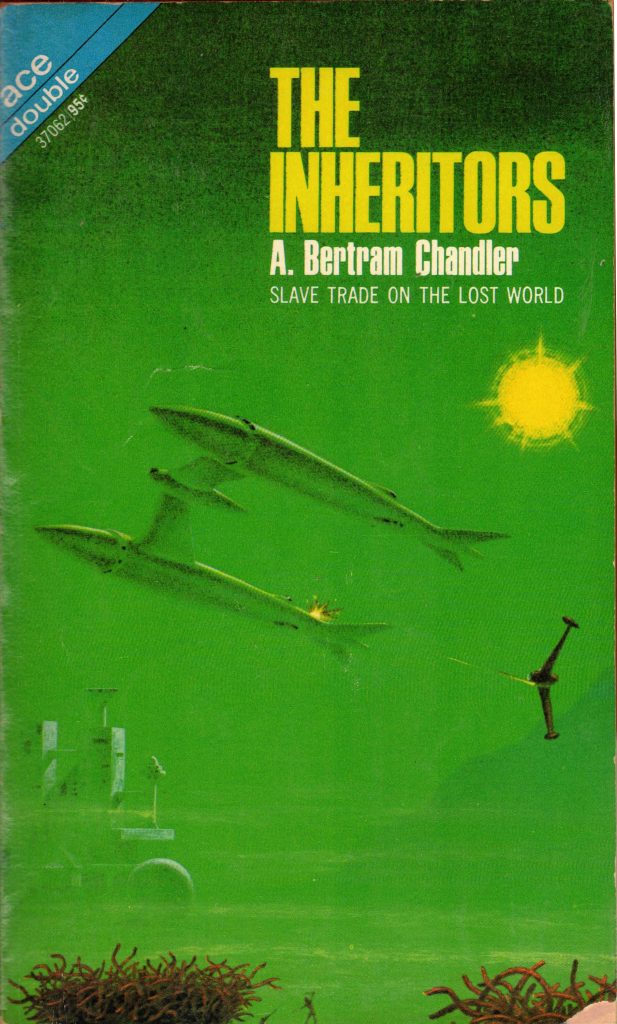St. Paul in Britain, or, The Origin of British Christianity, by The Rev. W. Morgan
and
The supposed Visit of St Paul to Britain: A Lecture Delivered In The University of Oxford, by Edward Cardwell


I remember watching an episode of Gilligan’s Island in the Before Time, and seeing the titular Gilligan beset by competing claims made by the Skipper and the Professor. Of course, I do not remember the actual statements made by those supporting characters who portrayed the Man of Common Sense and the Man of Science, respectively, in that mythic TV show, nor do I recall the actual plot. I suspect that it involved a chance to escape the tiny tropical island upon which the seven castaways were marooned, and that this time it seemed sure of success, although I have a further suspicion that some action (or inaction) on Gilligan’s part may have doomed their chance to return to civilization. Or maybe it was just a visit from Kurt Russell. Anyway…. What I do remember is the Professor and the Skipper, first one and then the other, explaining in each one’s peculiarly reassuring way just how such-and-such would work or should be done or whatever, the sticking point being that the views espoused by the Professor and the Skipper were diametrically opposed. After the Professor (let’s say) spoke to Gilligan, Gilligan said to himself, “The Professor’s right!” And then the Skipper cornered him and made his case, after which Gilligan said, “The Skipper’s right!” And so it went. Whoever spoke to Gilligan last was able to convince Gilligan completely. (Small aside: I once had a boss like this, whom it was very important to talk to just before he made his final presentation to his boss, else that complete project plan you’d made two days earlier would be overturned by offhand words dropped in his ear at lunch by a competing junior executive.) That peculiar Heisenberg Principle of Gilligan Certainty, combined with the well-known Dunning-Kruger effect, explains much about my own pseudo-intellectual psychology, particularly when it comes to topics such as that presented by the Rev. R. W. Morgan in St. Paul in Britain.
This delightful book is Wacko Done Right, a tasty blend of erudition, informed speculation, documentation, and plausible nonsense that makes good conspiracy theories just plain fun, and which is almost always absent from the modern product. Reading the words written a century-and-a-half ago by Richard Williams Morgan makes me almost believe that Saint Paul somehow continued on the journey begun on the road to Damascus to sojourn for a while in faraway Albion before returning to Rome for his second trial and eventual martyrdom. I am just ‘this close’ to being persuaded of this obvious untruth, and that is what is great about this book, and what is great about the best of Wacko Thought. The power to convince people of wrong-headed ideas is why men as smart as Samuel Clemens could believe that Shakespeare didn’t write Shakespeare’s plays, why the Templars and the Illuminati can still move books off the shelves (in spite of the fact that one group became bankers after their military operations ceased and the other were just grifting dreamers and schemers who didn’t ever amount to anything), and why we will never, ever know just what did happen to JFK.
What is Morgan’s argument? He neatly summarizes his entire Wacko thesis:
Christianity was first introduced into Britain by Joseph of Arimathæa, A.D. 36-39; followed by Simon Zelotes, the apostle; then by Aristobulus, the first bishop of the Britons; then by St. Paul. Its first converts were members of the royal family of Siluria—that is, Gladys, the sister of Caràdoc, Gladys (Claudia) and Eurgen his daughters, Linus his son, converted in Britain before they were carried into captivity to Rome; then Caràdoc, Brân, and the rest of the family, converted at Rome. The two cradles of Christianity in Britain were Ynys Wydrin, ‘the Crystal Isle,’ translated by the Saxons Glastonbury, in Somersetshire, where Joseph settled and taught, and Siluria, where the earliest churches and schools, next to Ynys Wydrin, were founded by the Silurian dynasty. Ynys Wydrin was also commonly known as Ynys Avàlon, and in Latin “Domus Dei,” “Secretum Dei.”
Say what you want, at least Morgan doesn’t beat about the bush
Now don’t you worry, Rev. Morgan has plenty of evidence for each and every one of those statements, though the years since those words were published have not been kind to his arguments. And he is by no means a deceitful footnoter, like Arthur Butz, the (appropriately named) author of The Hoax of the Twentieth Century, who hides his use of the self-serving testimony of an SS officer on trial for his life to prove that the Holocaust never happened. No, Richard Williams Morgan fails not because he is a liar, but because he relies upon lying evidence, sources which either slant, bend, or distort the facts to bolster their own preferred arguments (such as those supporting Glastonbury’s claim to primacy among British churches), or sources which turned out to be blatant forgeries. Among the latter, the most blatant were the work of Edward Williams, whom Wikipedia deigns to call by his so-called ‘bardic name’ of Iolo Morganwg.*
Now this Edward Williams almost singlehandedly promoted a bizarre revisionist retelling of the lost mysteries of the ancient Druids, claiming that Welsh Bards preserved the ‘old ways’ against the brutalizing forces of the Roman conquest of Britain, merging their putatively peaceful spirituality with that of earliest Christianity, which remained in Britain truer to the original doctrines preached by the apostles and the Seventy. This last point is particularly important in the Reverend Morgan’s work, as it is in most proponents who promulgate the spiritual purity of the British Church in contradistinction to the (supposedly) adulterated version found in Rome. Much of Morgan’s book is spent demonstrating that the Christian Church in Britain was going gangbusters when Augustine, the future first Archbishop of Canterbury, showed up on a mission from the pope to convert the Kentish heathens and to bring the already extant churches under the sway of Rome. Morgan preaches that the churches of Britain were founded upon the true sources of Christian faith, direct from the earliest apostles and disciples, and that there was and is no reason to kowtow to some foreign prelate in matters of religion.
Thus Reverend Morgan had the misfortune not only to write his work at the high tide of credence in the unsupported beliefs which gave rise to Neo-Celtic Christianity, but also to base his claims upon spurious documents, assiduous though he was to reference each and every source. (The book was written at a time when all literate people (mostly men, we assume) read and spoke Latin, and probably a little Greek as well, so many of the citations which he quotes in full were almost useless to this ignorant, benighted reader, malheureusement.) Reliance upon forgery is not his only failing, however, for his credulous nature makes him all too liable to blind himself to the most obvious motives in even his valid sources, as when he elides over the self-serving claims of the Church of Glastonbury to be founded by Joseph of Arimathæa. There are many such instances.
For our part, we cast aside the addenda and crescenda, the legends, poems, marvels which after ages, monk, troubadour, and historian piled high and gorgeously on the original foundation. That foundation must indeed have originally possessed no mean strength, depth, and solidity, to bear the immense superstructure which mediæval superstition and literature emulated each other in erecting above the simple tomb of the Arimathæan senator in the Avàlon isle.
In a striking prolepsis, Rev. Morgan discounts his opponents’ arguments by disclaiming all dependence upon myths and legends, all while also proclaiming those legends as heavy weights in the balance for his own case

Sadly, most of this chronology for the birth of the British Church was destroyed quite aptly almost a quarter century before Morgan’s St. Paul in Britain, by Edward Cardwell in The supposed Visit of St. Paul in Britain, an Oxford lecture published in 1837. In this remarkably brief (31 pages, including the 2-page introduction) pamphlet, Cardwell demolishes almost utterly the most fantastic claims later promoted by Rev. Morgan. Indeed, the tract seems almost an outline for the latter half of Morgan’s book, which the later author had only to invert to make the positive case which is reprinted in the first passage from St. Paul in Britain quoted above. Both, in fact, speak of their debt to the famous Bishop Usher, though Morgan’s debt is to the 17th-Century prelate’s researches tending to prove the apostasy of the Roman Church, while Cardwell references the creator of the famous chronology of The Bible as an incitement to speak up against the claims that Saint Paul ever sojourned in Britain.
Unfortunately, in the reaction to the most strident claims made in St. Paul in Britain, the debunkery succeeded so well in pooh-poohing the crazy idea in that book’s title that one of the most striking aspects of British Christianity is left unhallowed and unappreciated. I am speaking of the unquestioned early date at which Christian churches can be found in Britain. The mission of Aristobulus to the faraway isles is not seriously doubted, and there certainly seems strong evidence that Christian missions were present no later than the 3rd Century, much earlier than that of Augustine of Canterbury (as he was to become) in 597. The 7th-Century fights over such issues as the correct form of monastic tonsure prove how deeply rooted the Christian Church was already before the Roman mission supported by Pope Gregory. (Unlike the circle at the top of the head, the Celtic form involved shaving the head from ear to ear.) There is a fascinating tale still remaining to be told, which perhaps can never be truthfully told due to the lying lines of the so-called bard Morganwg. As for myself, I would have to do much more reading and research on the subject (and likely would have to learn at least Latin), all while avoiding the danger of autodidactylic uncertainty, in order to have a valid opinion about the veracity of each individual point raised by Reverend Morgan.
My copy of St. Paul in Britain, offered by the publisher of the works of E. Raymond Capt, the noted British Israelite, is a 1984 reprint of the abridged edition of 1860, for which I am grateful. I doubt that the fifty-six pages about the early Church cut from my version would have added much to my enjoyment of Rev. Morgan’s argument. And I definitely found the quick pace and sparkling reasoning truly captivating. All I ask from from Wacko literature—be it Conspiracy, Secret Society, or other weirdness—is that it a) make startling claims which are b) supported by intriguing evidence that c) almost makes me a convert. St. Paul in Britain succeeds on all three counts. Nowadays we live in a world in which pizza parlor basements are named as headquarters for private child sex smugglers to the rich and powerful, only to learn that the promoters of such theories neglected to learn that the libeled pizza parlor didn’t even have a basement. Reading these learned Wacko words from 160 years ago is like breathing fresh air after enduring the stinking miasma of our current polluted product.
* The best source I have read about Iolo Morganwg né Edward Williams is a not entirely brief chapter in John Michell’s wonderful book Eccentric Lives and Peculiar Notions, which book I highly recommend. The wannabe Welsh bard has many sins to answer for, not least for his influence upon the balmy ideas of Gerald Gardner who gifted we Moderns and laters with the fictive Wicca movement.







